2024 Fellows
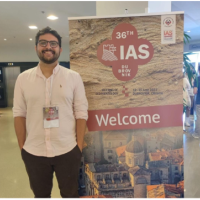
Gabriel Bertolini
Department: Earth, Ocean, and Atmospheric Sciences
Bio: Dr. Gabriel Bertolini is a postdoctoral research fellow in the Department of Earth, Ocean, and Atmospheric Sciences at the University of British Columbia. He completed his Ph.D. in Geosciences from the University of Aberdeen and Universidade Federal do Rio Grande do Sul in 2020, with a research focus on sand generation and dispersal in ancient sedimentary systems. Dr. Bertolini specializes in utilizing geochemical, geochronological, and petrology tools in detrital minerals, employing multivariate statistics to investigate sedimentary processes. Prior to his current role, Dr. Bertolini held positions as a postdoctoral fellow and lecturer at Universidade Federal do Rio Grande do Sul from 2021 to 2023. In 2024, he served as a research fellow at Unisinos, applying machine learning tools to model sedimentary basins. His research interests includes sedimentary provenance, fluvial-aeolian deposition, volcano-sedimentary interactions, and the stratigraphy of intracratonic basins. Additionally, he has expertise in data analysis and software development, utilizing R and Python for geosciences applications. Dr. Bertolini's research has led him to investigate various basins across South America, South Africa, China, and Europe.
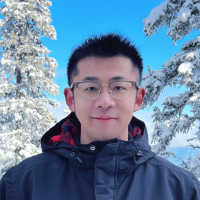
Yangshuai Wang
Department: Mathematics
Project: Technology pipeline for the development of Machine-Learned Interatomic Potentials (MLIPs)
Bio: Dr. Yangshuai Wang is currently a postdoctoral fellow in the Department of Mathematics at the University of British Columbia, working under the supervision of Prof. Christoph Ortner since December 2021. He obtained his PhD in computational mathematics from Shanghai Jiao Tong University in 2021. Dr. Wang's research interests lie in mathematical modeling, analysis, and their applications in materials and biomedical sciences. His work primarily focuses on advancing multi-scale methods and machine-learned interatomic potentials (MLIPs) to better understand material behaviors and biological processes. Through rigorous numerical analysis and the development of open-source software, Dr. Wang aims to contribute to the exploration and comprehension of real-world material systems.
2023 Fellows

Bingshan Hu
Department: Computer Science
Project: Anytime-Valid PAC-Bayes for Industrial Applications
Bio: Bingshan Hu is a postdoctoral fellow at the University of British Columbia under the supervision of Professors Danica Sutherland, Trevor Campbell, and Mathias Lecuyer. She received her Ph.D. in computer science from the University of Victoria, British Columbia, in 2021. Then, she was awarded Alberta Machine Intelligence Institute (Amii) postdoctoral fellowship and spent two years in Amii under the supervision of Nidhi Hegde at the University of Alberta and Mark Schmidt at the University of British Columbia. Her research mainly focuses on developing sample efficient and fast sequential-decision making algorithms, particularly, Thompson Sampling-based learning algorithms for complex reinforcement learning tasks.

Jennifer Gsponer
Department: Michael Smith Laboratories
Project: Technology pipeline for the development of Machine-Learned Interatomic Potentials (MLIPs)
Bio: Jennifer earned her Ph.D. in computational chemistry from the University of California, San Diego, under the guidance of Professors J. Andrew McCammon and Palmer Taylor. She was awarded National Science Foundation Postdoctoral Research Fellowship in Biological Informatics to conduct cutting-edge research in the lab of the late Professor Christopher Dobson at the University of Cambridge, UK. Upon her return to the United States, Jennifer further advanced her expertise in protein/enzyme engineering as she worked under the mentorship of Professor David Baker in the laboratory at the University of Washington, Seattle. Her current research, based in Dr. Gsponer’s lab, focuses on bridging machine learning and physical based models with experimental data to expedite the discovery of new drugs and therapies.
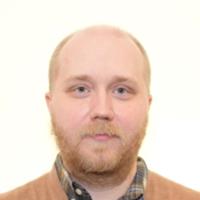
Teemu Jarvinen
Department: Mathematics
Project: Automating machine learning of interatomic potentials for green technologies
Bio: Dr. Teemu Järvinen is a postdoctoral fellow at the University of British Columbia at he department of mathematics under supervision of prof. Cristoph Ortner. He received his PhD from the University of Jyväskylä in 2022 from computational and theoretical chemistry. He has previously worked with molecular dynamics related to IR-spectroscopy and developed novel computational methods for electronic structure calculations. He’s current interest are related to developing machine learned potentials for molecular dynamics and development of scientific computing programs in general.
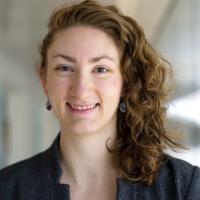
Abigail Azari
Department: Earth, Ocean, and Atmospheric Sciences
Project: Gaussian Processes for Advancing Understanding of Planetary Magnetism with Spacecraft Observations
Bio: Dr. Abigail Azari is a postdoctoral fellow at University of British Columbia (UBC) working on data science techniques applied to spacecraft observations of planetary magnetism. At UBC she works under the supervision of Dr. Catherine Johnson and in collaboration with Dr. Lindsey Heagy and Dr. Frank Wood. She is joining UBC from the University of California Berkeley's Space Sciences Lab where she worked on characterizing the space environment of Mars with MAVEN mission data. She received her PhD from the University of Michigan in 2020 which focused on interpretable methods for machine learning as applied to plasma transport around Saturn. Her research generally focuses on understanding planetary environments and their previous conditions by using newly available large datasets from planetary missions.

SangMook Kim
Department: Electrical and Computer Engineering
Project: Innovative deep-learning based program for cervical cancer screening
Bio: Dr. SangMook Kim is a postdoctoral research fellow in Electrical and Computer Engineering at the University of British Columbia. He is under the supervision of Prof. Xiaoxiao Li and Dr. Gang Wang. He obtained his PhD in Artificial Intelligence from KAIST (Korea Advanced Institute of Science and Technology) under the guidance of Prof. Se-young Yun. His PhD dissertation focused on designing data selection strategies for incomplete supervised federated learning, aiming to enhance the accuracy and robustness of the global model. His research interests encompass federated learning, data-centric AI, and medical image analysis. Currently, he is dedicated to developing a comprehensive automated deep learning system for cervical cancer screening, with the aim of minimizing the need for extensive labeling and addressing challenges associated with multi-institutional learning.
2022 Fellows
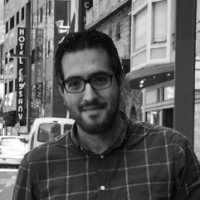
Ahmed AbuRaed
Department: Computer Science
Project: Robust, transferable and interpretable natural language processing of psychiatric clinical notes
Bio: Dr. Ahmed AbuRaed is a postdoctoral research fellow at the Department of Computer Science, University of British Columbia. He is supervised by Prof. Giuseppe Carenini and Dr. Elodie Portales-Casamar. He received his PhD in Computer Science from Universitat Pompeu Fabra under the supervision of Prof. Horacio Saggion, his PhD dissertation focused on the automatic generation of related work reports. Ahmed’s research interests include natural language processing, summarization, sentiment analysis and text mining in various domains. Specifically, his current research is about applying NLP and text mining to the healthcare domain in order to predict suicidality for children and teenagers.

Liam Madden
Department: Computer Science
Project: Blessings and curses of overparameterized learning: Optimization and generalization principles
Bio: Dr. Liam Madden is a postdoctoral fellow at the University of British Columbia supervised by Christos Thrampoulidis in the Department of Electrical and Computer Engineering and by Mark Schmidt in the Department of Computer Science. He received his BS from California Polytechnic State University in 2017 with a double major in Mechanical Engineering and Mathematics. He received his MS from the Department of Applied Mathematics at the University of Colorado Boulder in 2020 and his PhD in 2022, advised by Emiliano Dall'Anese and Stephen Becker. He enjoys walking in the woods, reciting poetry, and dancing with friends.
2021 Fellows

Gülcenur Özturan
Department: Ophthalmology & Visual Sciences
Project:A deep learning approach to analyzing retinal imaging for medical diagnosis and prediction
Bio: Dr. Gulcenur Ozturan is a postdoctoral fellow at the Department of Ophthalmology and Visual Sciences, University of British Columbia. She earned her MD at the Istanbul Cerrahpaşa Faculty of Medicine in 2015. In 2020, Dr. Ozturan completed her ophthalmology residency at Istanbul Okmeydanı Training and Research Hospital and started her practice as an ophthalmologist, prior to joining UBC. At the DSI, her research focuses on applications of machine learning in medical image analysis. The overarching aim of her study is to tease out medically pertinent information from retinal fundus images to inform early diagnosis and prediction of disease, and the interpretation of the pathophysiology and prognosis. Currently, two of her projects concern automated detection and diagnosis of autonomic dysreflexia in spinal cord injury patients, and neurodegenerative diseases, such as Alzheimer’s disease.

Arafeh Bigdeli
Department: Statistics
Project:Personalized risk assessment in pediatric kidney transplantation using metabolomics data
Bio: Dr. Arafeh Bigdeli is a postdoctoral research fellow at the Department of Statistics, the University of British Columbia working with Dr. Gabriela Cohen-Freue and Dr. Tom Blydt-Hansen. She is also working with experts at CANSSI Collaborative Research Team. Prior to joining UBC, she was a postdoctoral researcher at the Department of Chemistry, Sharif University of Technology, where she completed her BSc, MSc and PhD in Analytical Chemistry. She has previously worked on applying pattern recognition methods on high throughput data collected from optical sensor arrays for developing nanoparticle-based analytical devices for diagnostic and point-of-care applications. Her current research is directed towards analyzing metabolomics data with deep learning methods for medical diagnosis and prognosis.

Asad Haris
Department: Earth, Ocean, Atmospheric Sciences
Bio:Dr. Haris is a postdoctoral fellow in the department of Earth, Ocean and Atmospheric Sciences at the University of British Columbia. He received his PhD in Biostatistics from the University of Washington, Seattle in 2018. His graduate work focused on developing flexible statistical models for high-dimensional data. Before joining UBC, he was a postdoctoral researcher at McGill University where he developed targeted maximum likelihood methods for causal inference and measurement error problems. He is currently working on developing functional data models to understand climate change, vegetation mortality and the environmental impact of mining. His work involves extending existing methodology and developing novel techniques for spatio-temporal data.

Surya Dhulipala
Department: Mechanical Engineering
Bio: Dr. Dhulipala received his PhD in Chemical Engineering from University of Texas at Austin and his MS from Carnegie Mellon University. His PhD thesis was focused on quantifying emissions from oil and gas industry in Texas. Prior to joining UBC, he worked at an early stage startup developing drone-enabled and solar-powered low-cost sensors for detection of toxic chemicals. His postdoctoral research is focused on developing a 5G-enabled low-cost sensor network on UBC campus combining traffic, mobile and air quality data sets. Outside of work, Dr. Dhulipala is passionate about technology startups and likes to attend entrepreneurship meetups in Vancouver.
2020 Fellows

Jüergen Bernard
Department: Computer Science
Project:Visual analytics support for the HEiDi virtual physician COVID-19 deployment
Bio: Dr. Jürgen Bernard is a postdoctoral research fellow at the Department of Computer Science, University of British Columbia. He received his PhD Degree in Computer Science from the University of Technology in Darmstadt, Germany in 2015. In his dissertation, he studied the exploratory search paradigm for time series data using interactive visual interfaces. His primary research includes the characterization, design, and evaluation of visual-interactive interfaces to combine the strengths of both humans and algorithms in interactive machine learning and data science applications. His problem-driven research focus includes applications like Earth observation, digital libraries, human motion analysis, service and energy network monitoring, political decision-making, music classification, sports data analysis, finance and stock market analysis, as well as medical and patient-related research in particular.
2019 Fellows
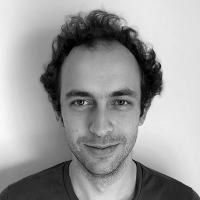
Oswald Barral
Department: Computer Science
Bio: Dr. Oswald Barral is a postdoctoral fellow at the Department of Computer Science, University of British Columbia. His work involves measuring and analyzing user signals (namely physiological signals) for user modeling and advanced human-computer interaction paradigms. His research is now centered in the study of human eye movements applied to the health care domain. He obtained his PhD in Computer Science with distinction from the University of Helsinki in 2018. In his dissertation, he studied implicit interaction paradigms using brain, cardiovascular, and other physiological signals.

Cory Bonn
Department: Psychology
Project:Quantifying individual differences from complex datasets in developmental psychology
Bio: Dr. Bonn is a postdoctoral fellow based in the Centre for Cognitive Development in UBC's Department of Psychology. His research aims to better understand how humans of all ages make inferences about quantities they observe, with a particular focus on developing models of our sense of approximate number. During his time at the DSI, he will develop a set of tools for understanding multivariate measures of brain activity and behavior from challenging subjects such as infants, toddlers, and preschool children, who typically give data in much smaller quantities than adults and tend to have much higher rates of missing or censored data. He completed his PhD at the University of Rochester in Brain and Cognitive Sciences and joined UBC following a postdoc at the Laboratoire Psychologie de la Perception at CNRS/Université Paris Descartes in France.
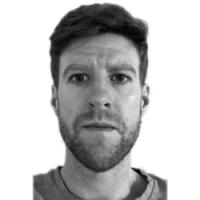
Ben Sobkowiak
Department: Respiratory Medicine
Bio: Dr. Sobkowiak is a postdoctoral research fellow working jointly with the BC Centre for Disease Control. His main research focuses on interrogating whole genome sequence data to better understand the spread of infectious disease. He works mainly with bacterial pathogens, notably Mycobacterium tuberculosis, combining genetic and epidemiological data to model outbreaks and reconstruct transmission networks to predict the drivers of transmission through the application of statistical and computational models, including machine-learning methods. He obtained his PhD in Computational Biology from University College London in 2017.

Chendi Wang
Department: Medical Genetics
Bio: Dr. Chendi Wang joined the Mostafavi lab as a postdoctoral fellow in Feb 2019. She obtained her PhD in Electrical and Computer Engineering at University of British Columbia in May, 2018. For her PhD Dr. Wang developed machine learning and statistical methods for analysis of multimodal brain imaging data including structural, functional, and diffusion MRI data. She was a research software engineer in industry developing machine learning and deep learning methods for computer vision applications before she joined the Mostafavi lab. Her current research interest is developing statistical and machine learning methods for understand biological and molecular basis of brain development.
2018 Fellows

Kieran Campbell
Department: Statistics
Bio: Dr. Kieran Campbell is a postdoctoral fellow at the Department of Statistics, University of British Columbia, and the Department of Molecular Oncology, BC Cancer Agency. His research centres around Bayesian statistical modelling of molecular cancer data with a particular focus on understanding why certain cancer cells evade chemotherapy and cause relapse. He gained his DPhil (PhD) from the University of Oxford working on statistical models of single-cell transcriptomics with Chris Yau.
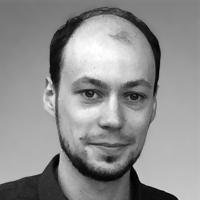
Sébastien Lallé
Department: Computer Science
Project:User modeling and adaptive support for MOOCS
Bio: Dr. Sébastien Lallé is a postdoctoral fellow at the University of British Columbia (UBC). He received his MsC and PhD in Computer Science from the Joseph Fourier University in 2013. In his work he focused on designing user models and personalized support in several interactive computer systems, including intelligent tutoring systems and visualization-based interfaces. His research interests also include user-adapted interaction, intelligent agents, affective computing, and eye-tracking data processing. His current research at UBC is about examining ways to deliver adaptive or personalized interaction in MOOCs (Massive Open Online Courses), in order to improve the learners' achievements and engagement.

Lisa Tang
Department: Radiology
Bio: Dr. Lisa Tang is a postdoctoral fellow presently working closely with experts at the Centre of Lung Heart Innovation, St. Pauls Hospital and UBC. Lisa obtained her PhD and BSc in Computing Science from Simon Fraser University. Her PhD dissertation examined various ways to advance previous methods for the registration of image volumes and sequences using graphical models and discrete optimization. Her research interests include computer vision, machine learning, medical image analyses, and deep learning strategies. She is currently exploring the the use of various deep learning architectures for the staging and prognosis of chronic obstructive pulmonary disease using lung computed tomographic imaging data.
2017 Fellows

Zahra Jalali
Department: Medical Genetics
Bio: Dr. Zahra Jalali received her PhD in Bioinformatics from the South African National Bioinformatics Institute in 2013. The focus of her doctorate research was on the computational identification and characterization of iron regulatory-related proteins in Glossina morsitans. She further continued her academic career as a postdoctoral fellow at the same institute, focusing on the comparative genomics analysis of mycobacterium tuberculosis in identifying putative drug resistance-associated markers. She has recently joined UBC as a postdoctoral fellow to work on the development and implementation of efficient statistical models to integrate multiple omics data types with the aim of identify novel genes and pathways associated with the pathophysiology of respiratory health and lung disease.

Hyeju Jang
Department: Computer Science
Project:Using text analysis for chronic disease management
Bio: Dr. Hyeju Jang received her PhD in Computer Science from Carnegie Mellon University. Her research interests include natural language processing, computational linguistics, discourse analysis, and text mining in various domains. Specifically, her current research is about applying NLP and text mining to the healthcare domain in order to help chronic disease management by processing patient-generated language. Her PhD dissertation focused on computationally modeling metaphor in order to capture how metaphor is used and identify a broader spectrum of predictors from the discourse context that contribute towards its detection.

Halyun Jeong
Department: Mathematics
Project:From heuristics to guarantees: the mathematical foundations of algorithms for data science
Bio: Dr. Jeong received his PhD in Mathematics from the Courant Institute Mathematical Sciences, New York University in 2017. His PhD research interest is about the mathematical signal processing including information theory and analog-to-digital (A/D) conversion, dynamical systems and stochastic processes, and geometry of high-dimensional data sets. In particular, he studied fast phase retrieval algorithms, the quantization of phaseless measurements, and the spectral analysis of an analog-digital conversion algorithm based on Markov chain. Currently, he focuses on the theoretical guarantees of efficient convex and non-convex iterative algorithms.
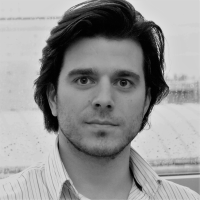
Jean-Sébastien Légaré
Department: Computer Science
Project:A platform for interactive, collaborative, and repeatable genomic analysis
Bio: Dr. Légaré comes from a computer science background and has worked with distributed systems, virtualization, and cloud platforms. For his PhD, he researched novel web-service architectures which could increase user privacy while preserving the business model of providers. He is looking forward to using computer science techniques to accelerate research in the natural sciences; in particular, to allow experiment to be packaged in an auditable and reproducible manner, and to scale existing toolchains to allow faster analysis and interactive queries on huge datasets.

Michael Fernandez Llamosa
Department: Vancouver Prostate Centre
Bio: Dr. Michael Fernandez is interested in data-driven solutions for the analysis and understanding of complex phenomena in chemical, biochemical and materials systems. He completed a PhD fellowship sponsored by the Japanese government at the School of Computer Sciences and Systems Engineering at Kyushu Institute of Technology, Japan in 2011. For more than a decade, his research has been focused on machine leaning and evolutionary computing strategies to identify structural-property relationships patterns in chemical, biomedical and advanced manufacturing data. He has authored more than 60 research papers, from positions at the Immunology Frontier Research Center, University of Osaka, Japan; the Faculty of Science, University of Ottawa, Canada; and CSIRO Manufacturing Unit, Australia. Currently, as part of the Computational Drug Design Laboratory in Vancouver Prostate Centre, he is implementing deep learning neural networks solutions for the accelerated discovery of new drugs for prostate cancer treatment.
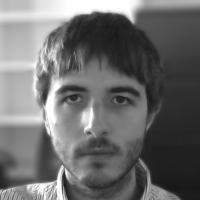
Ezequiel Smucler
Department: Statistics
Bio: Dr. Ezequiel Smucler received his PhD in Mathematics from University of Buenos Aires in 2016, advised by professor Victor J. Yohai. His research interests include statistics for high-dimensional data, dimension reduction for time series, robust statistics and applications of natural language processing. At the DSI, he is currently working on two projects: ensembling regularized linear models and analysis of fake news.